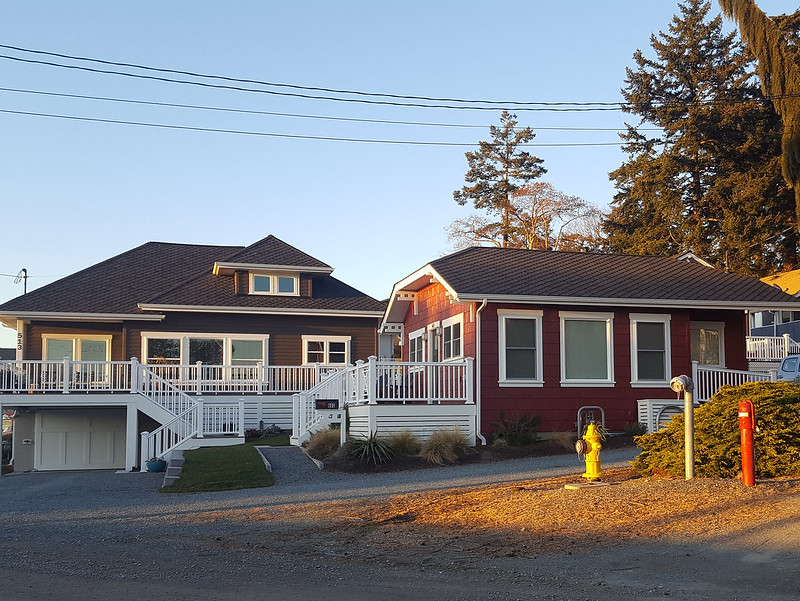Washington state representatives Mia Gregerson (D-SeaTac) and Andrew Barkis (R-Olympia) introduced a new bill in Olympia yesterday evening that would lift barriers to backyard cottages and mother-in-law apartments across the state. And it probably looks familiar.
These modest homes—which urban planners call accessory dwelling units (ADUs)—provide low-impact infill housing options in existing neighborhoods, cutting commutes and increasing access to parks, schools, shops, and transit. Their flexible design and smaller size makes them suitable for a variety of households, from aging parents to fledgling graduates.
If passed, the bill would dismantle five top barriers homeowners face to building ADUs on their property:
- Remove lot size requirements for attached ADUs, and set 3,500 square feet as the standard lot size minimum for detached units;
- Eliminate off-street parking and owner occupancy requirements;
- Limit permitting, plan review, and impact fees to no more than half of those applied to single, detached residences;
- Require new utility connections only when site-specific conditions warrant a second connection, and ensure fees are proportionate to the burden the secondary units place on the water or sewer system.
The bill also establishes a menu of five additional reforms, of which jurisdictions must implement at least three. Options include permitting two ADUs per parcel, allowing more generous size and height limits, and adopting preapproved ADU architectural plans. The menu framework gives cities flexibility to select policies that fit local contexts, while ensuring all jurisdictions take meaningful action to boost ADU production.
The third section of the bill includes a list of additional policy recommendations, including eliminating impact fees, and upping rear yard coverage standards. The bill encourages, but does not require, adoption of these policies.
The bill—which Sightline advised on—would go into effect in July 2021, and apply only in jurisdictions planning under the state’s Growth Management Act that exceed specific population thresholds: 2,500 for cities, and 15,000 for counties. These jurisdictions would also be exempt from appeals under the state’s Environmental Protection Act (SEPA) for any policy implemented under the bill. Despite established climate benefits of infill housing, activists frequently file SEPA appeals to block green urban planning initiatives.
Last year’s effort to cut ADU red tape across Washington garnered support from lawmakers on both sides of the aisle, as well as from affordable housing and environmental advocates. Despite its popularity among diverse stakeholders, the 2019 bill failed to pass. Legislators concerned that the bill destroyed local autonomy gutted the proposal. This year’s more flexible design responds to concerns about locally specific solutions, while ensuring all cities take meaningful action on ADUs.
Since Washington legislators stalled on last year’s bill, California and Oregon have moved forward with their own statewide ADU reforms, and cities in both states are already reaping the benefits.
Given the urgency of the state’s housing shortage, and the broader climate crisis, Washington legislators would be remiss to delay action on a bill that would provide much needed progress on both.

